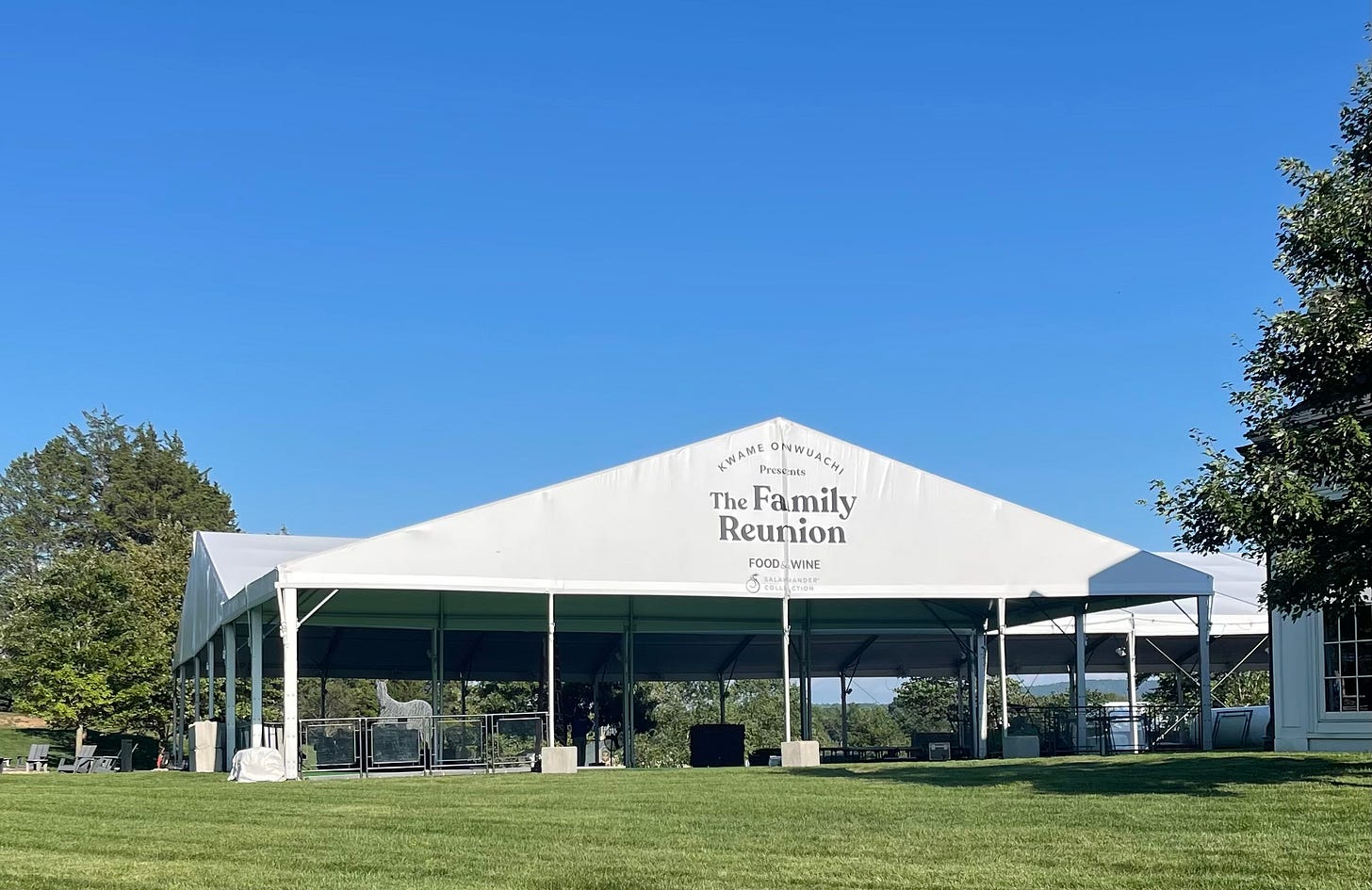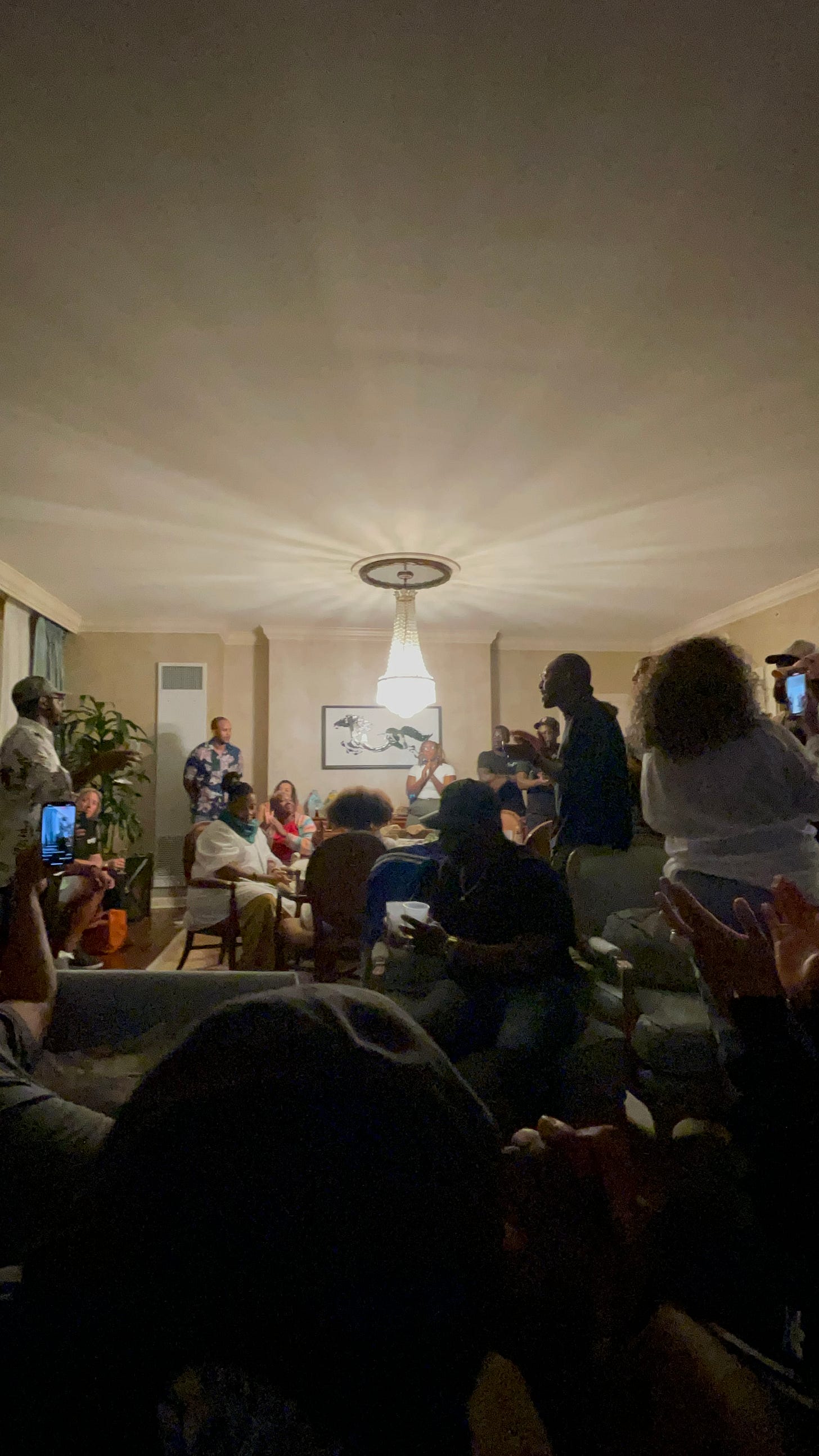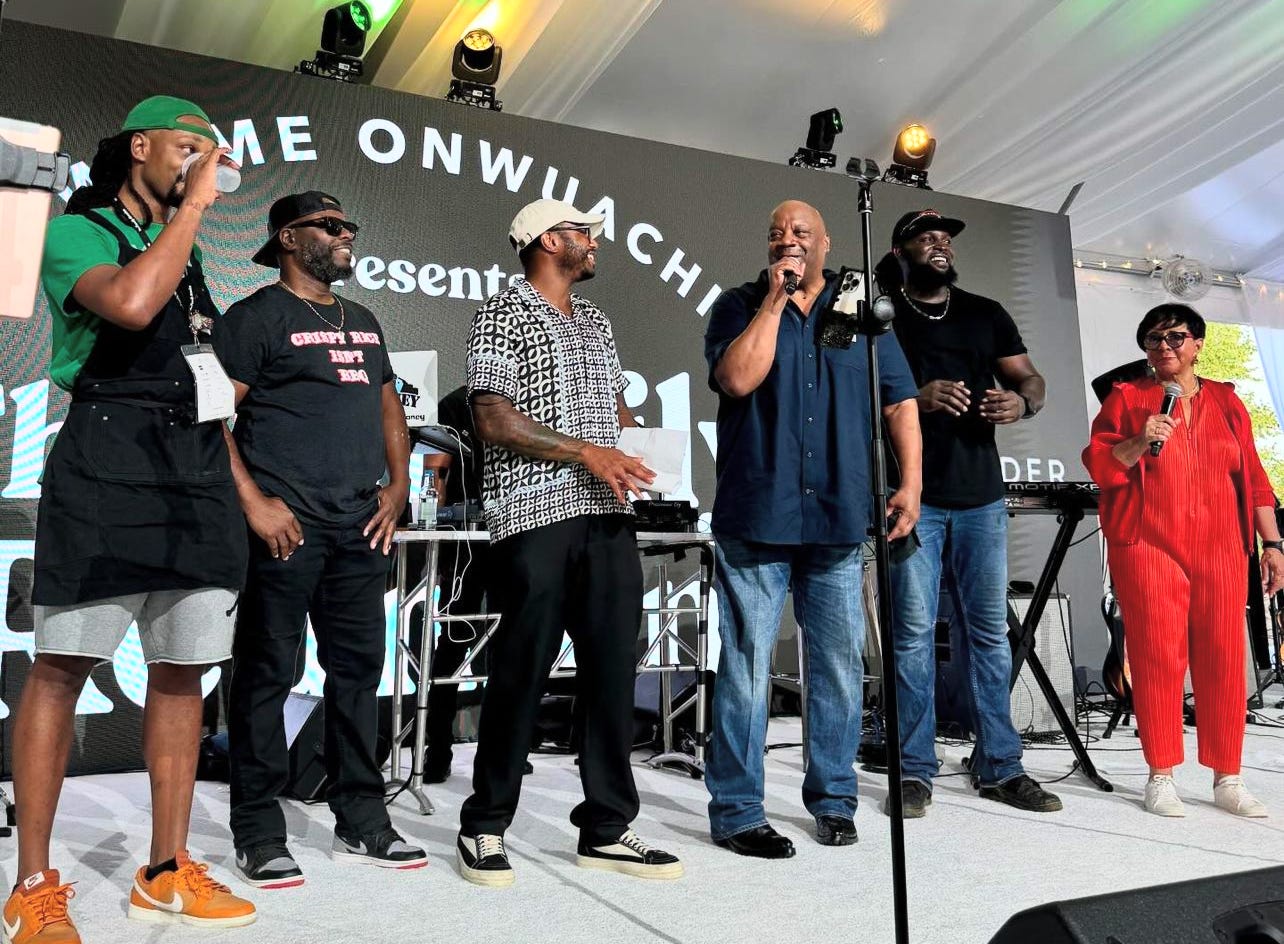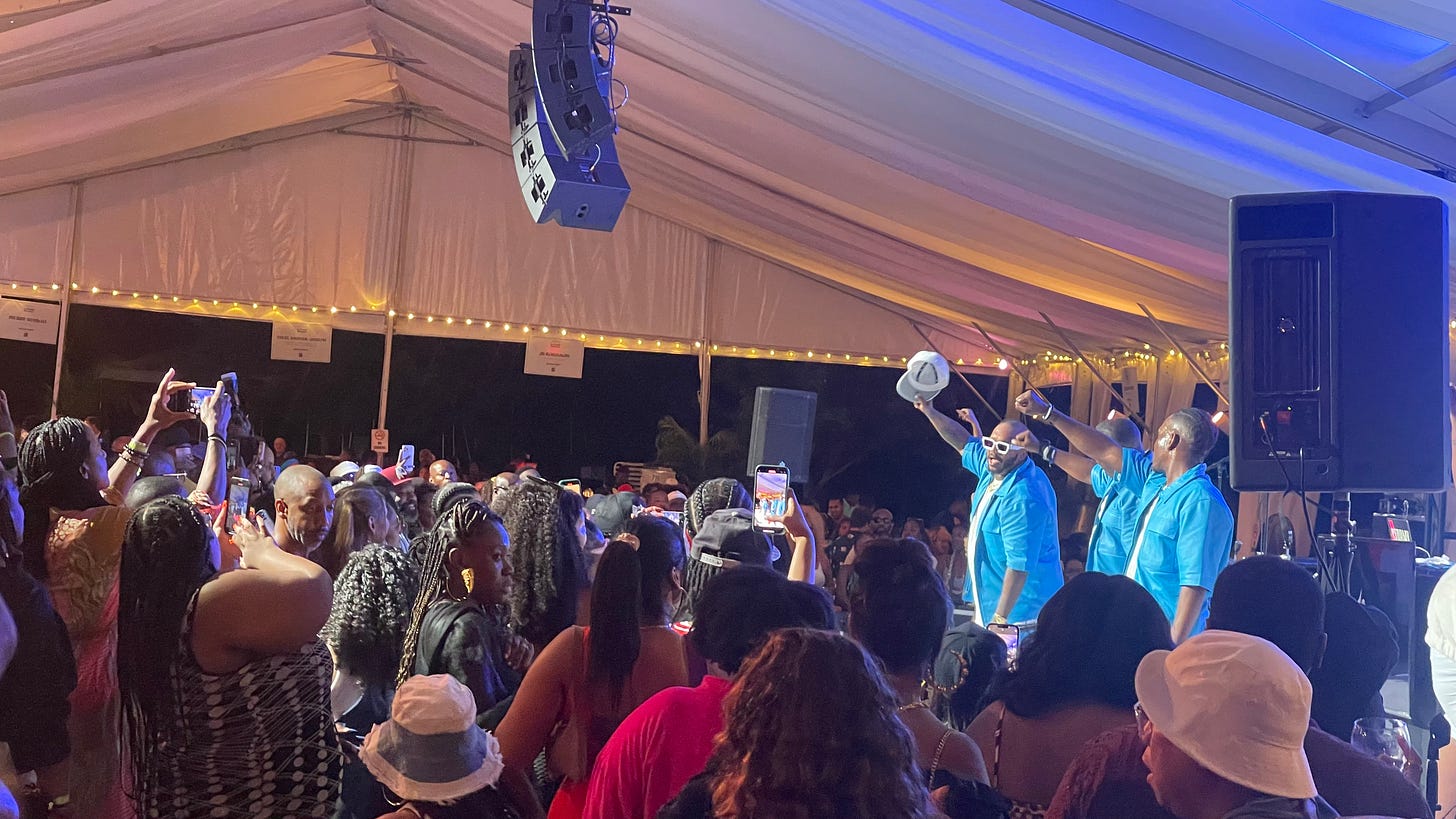Rewriting the Narrative: Why I’m Proud to Stand at the Fire for Family Reunion
I show up because I believe in what this is—and what it can become.
By all accounts, Family Reunion is one of the most anticipated culinary events of the year. And yet, each year, as the dates are announced and the buzz begins to build, so does a particular thread of conversation, some of it celebratory, some of it curious, and some of it, if I’m honest, conflicted.
So let me say this from where I stand, not just as a guest, not as a ticket holder, but as someone who has the privilege of being part of the lineup, cooking shoulder to shoulder with some of the most respected chefs and culinary minds on the planet: Family Reunion is for everyone. But it was built to honor something very specific.
And that matters.
The event’s name is Family Reunion, not The Black Family Reunion. But I understand where the confusion, or let’s call it controversy, comes from. When we think of a family reunion, many of us in the Black community instinctively picture those gatherings stitched into our memory: the folding chairs, the matching T-shirts, the laughter that echoes across generations. That image is deep in our bones. It’s real. It’s powerful.
But Family Reunion at Salamander Resort is not an exclusive gathering. It’s a celebration. And it just so happens that the celebration centers Black culinary excellence, Black thought leadership, and the cultural legacy of food as identity, resistance, and community.
Is the majority of the crowd Black and brown? Yes, but we are not the only ones there. The doors are open, the table is long, and anyone with a sincere love of food, culture, and connection is welcome.
What often gets missed in the discourse is this: the value of what’s being offered.
A $6,000 price tag makes people pause. I get it. But let’s break that down.
For a week, Family Reunion turns Salamander Resort into what I honestly believe is the best restaurant on the planet. You could try, and I challenge you to do this to eat at all the restaurants represented by the chefs and talent on-site. To travel to their kitchens, order their food, attend their lectures, and get that kind of access and hospitality. You’d spend far more than $6,000. And you’d still never get this.
Because this isn’t just food. It’s food on repeat, served in rounds, passed with joy. It’s conversations with people like Chef Erick Williams and Dr. Jessica B. Harris, whose voices shape not just menus, but movements. It’s early morning walks that turn into mentorship moments. It’s panels that stretch far beyond the plate, diving into history, entrepreneurship, mental health, and innovation.
And yes, it’s expensive. But so are most festivals of this caliber. Coachella costs. So does Aspen. So does Art Basel. The difference is that this one doesn’t dilute or distance itself from Blackness. And sometimes, that alone is what draws the controversy.
But here’s the truth: this event doesn’t ask for permission to be proud. It just is.
Family Reunion is not a gated community. It’s not a trend-chasing activation. It’s a living, breathing reflection of what happens when we are allowed to gather at full volume. It’s a space where heritage isn’t footnoted, it’s front and center. And that’s rare. That’s sacred.
So, for those watching from the outside wondering, “Is this really for me?” I’ll say this: If you love food, if you love learning, if you’re open to listening, and if you’re excited to contribute rather than just consume, yes. It’s for you.
And if you’re part of the culture and feel uncertain, I challenge you to shift the lens. From “It’s not for us” to “I can’t wait to be part of this.” Because the way we change the narrative is by showing up. By filling the space, not just with attendance, but with energy, creativity, and legacy.
I show up because I believe in what this is and what it can become.
And I’ll keep showing up. Because if we don’t hold our own reunions, someone else will try to write our history for us.
And they won’t get the seasoning right.







